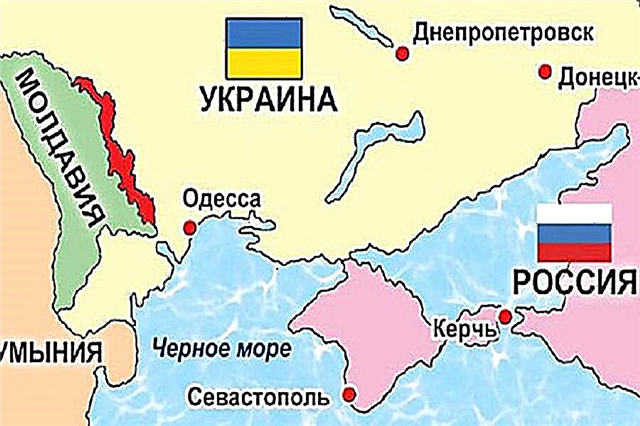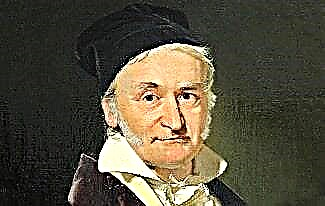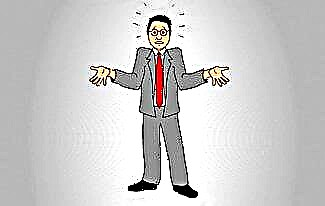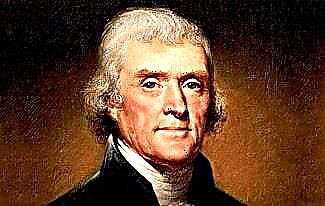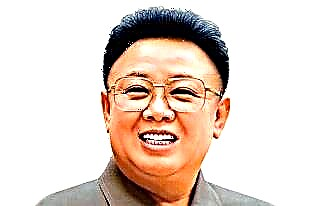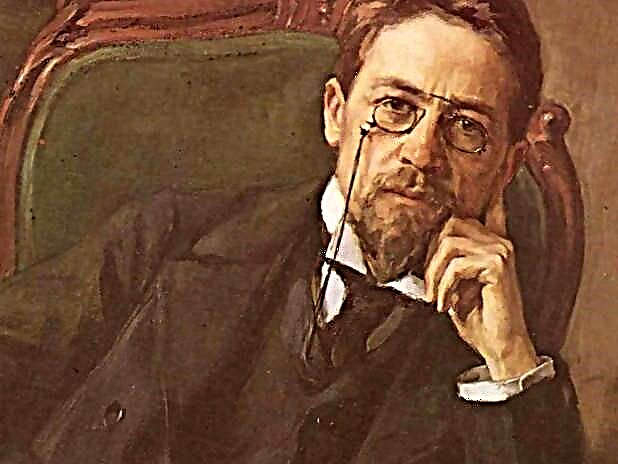Felix Edmundovich Dzerzhinsky (1877-1926) - Russian revolutionary of Polish origin, Soviet politician, head of a number of people's commissariats, founder and head of the Cheka.
Had nicknames Iron Felix, "Red Executioner" and FD, as well as underground pseudonyms: Jacek, Jakub, Bookbinder, Franek, Astronomer, Jozef, Domansky.

There are many interesting facts in the biography of Dzerzhinsky, which we will talk about in this article.
So, before you is a short biography of Felix Dzerzhinsky.
Biography of Dzerzhinsky
Felix Dzerzhinsky was born on August 30 (September 11), 1877 in the Dzerzhinovo family estate, located in the Vilna province (now the Minsk region of Belarus).
He grew up in a wealthy family of the Polish nobleman-gentry Edmund-Rufin Iosifovich and his wife Helena Ignatievna. The Dzerzhinsky family had 9 children, one of whom died in infancy.
Childhood and youth
The head of the family was the owner of the Dzerzhinovo farm. For some time he taught mathematics at the Taganrog gymnasium. An interesting fact is that among his students was the famous writer Anton Pavlovich Chekhov.
The parents named the boy Felix, which means "happy" in Latin, for a reason.

It so happened that on the eve of giving birth, Helena Ignatievna fell into the cellar, but she managed to survive and prematurely give birth to a healthy son.
When the future revolutionary was about 5 years old, his father died of tuberculosis. As a result, the mother had to raise her eight children on her own.
As a child, Dzerzhinsky wanted to become a priest - a Catholic priest, as a result of which he planned to enter a theological seminary.
But his dreams were not destined to come true. At the age of 10, he became a student at the gymnasium, where he studied for 8 years.
Completely not knowing Russian, Felix Dzerzhinsky spent 2 years in grade 1 and at the end of grade 8 was released with a certificate.
However, the reason for the poor performance was not so much mental ability as conflicts with teachers. In the last year of his studies, he joined the Lithuanian Social Democratic organization.
Revolutionary activity
Carried away by the ideas of social democracy, 18-year-old Dzerzhinsky independently studied Marxism. As a result, he became an active revolutionary propagandist.
A couple of years later, the guy was arrested and sent to prison, where he spent about a year. In 1898 Felix was exiled to the Vyatka province. Here he was under constant police surveillance. However, even here he continued to conduct propaganda, as a result of which the revolutionary was exiled to the village of Kai.
While serving his sentence in a new place, Dzerzhinsky began to consider an escape plan. As a result, he managed to successfully escape to Lithuania, and later to Poland. At this time in his biography, he was already a professional revolutionary, able to argue his views and convey them to the broad masses.
Having reached Warsaw, Felix got acquainted with the ideas of the Russian Social Democratic Party, which he liked. Soon he is arrested again. After spending 2 years in prison, he learns that they are going to exile him to Siberia.
On the way to the place of settlement, Dzerzhinsky was again lucky to make a successful escape. Once abroad, he was able to read several issues of the newspaper "Iskra", which was published with the assistance of Vladimir Lenin. The material presented in the newspaper even more helped him to strengthen his views and develop revolutionary activity.

In 1906, a significant event took place in the biography of Felix Dzerzhinsky. He was fortunate enough to meet Lenin. Their meeting took place in Sweden. Soon he was accepted into the ranks of the RSDLP, as a representative of Poland and Lithuania.
An interesting fact is that from that moment until 1917, Dzerzhinsky was sent to prisons 11 times, which were constantly followed by exile. However, each time he managed to make successful escapes and continue to engage in revolutionary activities.
The historic February Revolution of 1917 allowed Felix to reach great heights in politics. He became a member of the Moscow committee of the Bolsheviks, where he called on like-minded people to an armed uprising.
Lenin admired Dzerzhinsky's enthusiasm, entrusting him with a place in the Military Revolutionary Center. This led to the fact that Felix became one of the key organizers of the October Revolution. It is worth noting that Felix supported Leon Trotsky in the creation of the Red Army.
Head of the Cheka
At the end of 1917, the Bolsheviks decided to found the All-Russian Extraordinary Commission to Combat Counter-revolution. The Cheka was an organ of the "dictatorship of the proletariat" that fought the opponents of the current government.
Initially, the commission consisted of 23 "Chekists" led by Felix Dzerzhinsky. They were faced with the task of waging a struggle against the actions of counter-revolutionaries, as well as defending the interests of the power of the workers and peasants.
Heading the Cheka, the man not only successfully coped with his direct responsibilities, but also did a lot to strengthen the newly formed power. Under his leadership, over 2000 bridges, about 2500 steam locomotives and up to 10,000 km of railways were restored.

At the same time, Dzerzhinsky monitored the situation in Siberia, which at the time of 1919 was the most productive grain region. He took control of the procurement of food, thanks to which about 40 million tons of bread and 3.5 million tons of meat were delivered to the starving cities.
In addition, Felix Edmundovich was noted for important achievements in the field of medicine. He helped doctors fight typhus in the country by regularly supplying them with all the necessary medicines. He also sought to reduce the number of street children, making them "good" people.
Dzerzhinsky headed the children's commission, which helped build hundreds of labor communes and shelters. An interesting fact is that usually such establishments were transformed from country houses or estates taken from the rich.
In 1922, while continuing to lead the Cheka, Felix Dzerzhinsky headed the Main Political Directorate under the NKVD. He was one of those who participated in the development of the New Economic Policy (NEP). With his submission, joint-stock companies and enterprises began to open in the state, which developed with the support of foreign investors.
A couple of years later, Dzerzhinsky became the head of the Higher National Economy of the Soviet Union. In this position, he carried out many reforms, advocating the development of private trade, as well as actively involved in the development of the metallurgical industry in the state.
"Iron Felix" called for a total transformation of the USSR's governing system, fearing that in the future the country could be headed by a dictator who would "bury" all the achievements of the revolution.
As a result, the "bloodthirsty" Dzerzhinsky went down in history as a tireless worker. It is worth noting that he was not prone to luxury, self-interest and dishonest gain. He was remembered by his contemporaries as an incorruptible and purposeful person who always achieves his goal.
Personal life
Felix Edmundovich's first love was a girl named Margarita Nikolaeva. He met her during his exile in the Vyatka province. Margarita attracted the guy with her revolutionary views.
However, their relationship never resulted in a wedding. After the escape, Dzerzhinsky corresponded with the girl until 1899, after which he asked her to stop communicating. This was due to the new love of Felix - revolutionary Julia Goldman.
This romance was short-lived, since Yulia died of tuberculosis in 1904. Six years later, Felix met his future wife, Sofia Mushkat, who was also a revolutionary. After several months, the young people got married, but their family happiness did not last long.

Dzerzhinsky's wife was detained and sent to prison, where in 1911 her boy Yan was born. The following year, she was sent into eternal exile in Siberia, from where she was able to flee abroad with a fake passport.
Felix and Sophia saw each other again only after 6 years. After the October Revolution, the Dzerzhinsky family settled in the Kremlin, where the couple lived until the end of their lives.
Death
Felix Dzerzhinsky died on July 20, 1926 at the plenum of the Central Committee at the age of 48. After delivering a 2-hour speech in which he criticized Georgy Pyatakov and Lev Kamenev, he felt bad. The cause of his death was a heart attack.
Dzerzhinsky Photos






